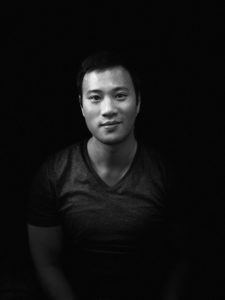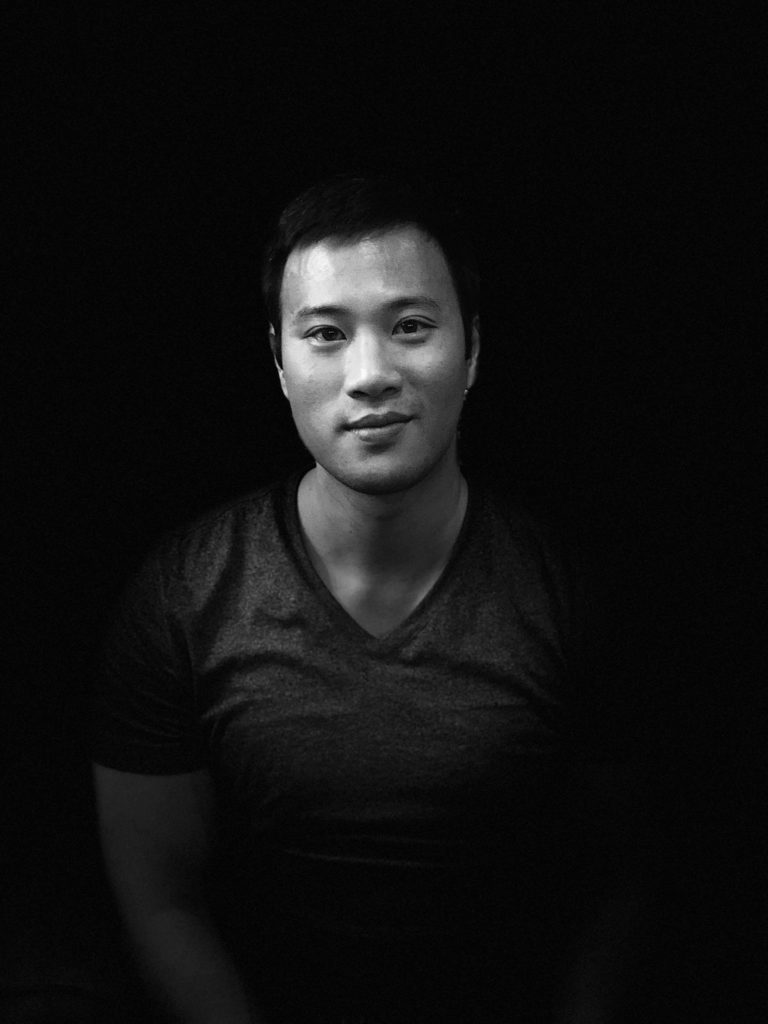New ‘Off-the-Record’ Course Aims to Give Entrepreneurs the Chance to Speak More Candidly About their Startup Experience
This fall semester, the Sutardja Center for Entrepreneurship and Technology (SCET) at the University of California, Berkeley will offer a small, selective course that will focus on some of the less glamorous elements of creating a company. The course will feature a speaker series of entrepreneurs and innovators who will share intimate details of their startup beginnings “off the record” — no documentation or press will be allowed in the classroom — so that speakers can feel comfortable telling their whole story.
Richard Din (Electrical Engineering & Computer Sciences ‘08, Economics ‘08), the co-founder of Caviar, a revolutionary food-delivery app, helped imagine the new course in collaboration with SCET. The course will host diverse and unique speakers from the tech industry who will share personal stories about their startups, including the not-so-fun elements such as “co-founder fights, investor drama, and running out of money.”
“When it’s off the record, then you can be more candid about finer details and tell more interesting stories,” said Din.
The idea for the course came about when Din gave a guest lecture in a Berkeley class where he wasn’t able to share some of the drama and nuances of his stories with students because of the sheer size of the audience and being in a public forum. The situation wasn’t ideal, as sharing only the rosier moments of creating a new company leaves out some of the most important chances for reflection. When Richard was ready to fulfill his Berkeley Founders’ Pledge, he chose to facilitate the creation and support of this new course.
By getting the whole story from seasoned entrepreneurs, Din hopes that students will have a more realistic assessment of what to expect, but he also hopes that students will see that it’s a great time to be an entrepreneur, and there is a lot of opportunity to take a chance on an idea.
Din met his first Caviar co-founder when he was an Electrical Engineering and Computer Sciences major at Berkeley, but they didn’t begin their project until two years after graduation. In those two years, Din worked in the tech industry and was pleased with his steady 9-5 job. His co-founder, who was working at Google at the time, had been persistent about wanting to start a company together, but Din wasn’t sure at first if he could drop everything to be an entrepreneur.
“The problem is that you get very comfortable, You have a paycheck and you’re going to nice dinners. It’s actually easier to start a company right after college when you’re used to having no money. And what’s the worst thing that could happen?” asked Din. “You learn something new, and you get to try something else. You want to look back at your life and say you lived your life with no regrets. And so for me, I told myself the worst case is that I waste a couple of years. But it’s not really a waste, because I’m learning something new — and something that you can’t really learn in college either.”
So, Din decided to take the plunge. He gave up his regular job and co-founded Caviar in 2011. A little over two years later, Caviar was sold to Square. Shortly after the sale, Din received a call from two not-be-be-named-here famous investors who criticized his choice to sell the company — just the kind of story that is hard to share in a public space.
So, ultimately what does Din hope that Berkeley students will take away from the class?
“For [Berkeley] students: Don’t be afraid to fail,” said Din. “[Berkeley] students have been at the top of their class for their entire lives. They’re only used to successes and doing everything right. But that doesn’t translate into the business world. And so don’t be afraid to fail, and don’t be afraid to fail often. If you need to test your idea, and it doesn’t work out, that’s fine. Just take a lesson from your failure and apply it to your next idea.”
Students interested in taking the course must be nominated by a professor. Professors can send nominations to Jennifer Nice at jennifernice@berkeley.edu.
This fall semester, the Sutardja Center for Entrepreneurship and Technology (SCET) at the University of California, Berkeley will offer a small, selective course that will focus on some of the less glamorous elements of creating a company. The course will feature a speaker series of entrepreneurs and innovators who will share intimate details of their startup beginnings “off the record” — no documentation or press will be allowed in the classroom — so that speakers can feel comfortable telling their whole story.
Richard Din (Electrical Engineering & Computer Sciences ‘08, Economics ‘08), the co-founder of Caviar, a revolutionary food-delivery app, helped imagine the new course in collaboration with SCET. The course will host diverse and unique speakers from the tech industry who will share personal stories about their startups, including the not-so-fun elements such as “co-founder fights, investor drama, and running out of money.”
“When it’s off the record, then you can be more candid about finer details and tell more interesting stories,” said Din.
The idea for the course came about when Din gave a guest lecture in a Berkeley class where he wasn’t able to share some of the drama and nuances of his stories with students because of the sheer size of the audience and being in a public forum. The situation wasn’t ideal, as sharing only the rosier moments of creating a new company leaves out some of the most important chances for reflection. When Richard was ready to fulfill his Berkeley Founders’ Pledge, he chose to facilitate the creation and support of this new course.
By getting the whole story from seasoned entrepreneurs, Din hopes that students will have a more realistic assessment of what to expect, but he also hopes that students will see that it’s a great time to be an entrepreneur, and there is a lot of opportunity to take a chance on an idea.
Din met his first Caviar co-founder when he was an Electrical Engineering and Computer Sciences major at Berkeley, but they didn’t begin their project until two years after graduation. In those two years, Din worked in the tech industry and was pleased with his steady 9-5 job. His co-founder, who was working at Google at the time, had been persistent about wanting to start a company together, but Din wasn’t sure at first if he could drop everything to be an entrepreneur.
“The problem is that you get very comfortable, You have a paycheck and you’re going to nice dinners. It’s actually easier to start a company right after college when you’re used to having no money. And what’s the worst thing that could happen?” asked Din. “You learn something new, and you get to try something else. You want to look back at your life and say you lived your life with no regrets. And so for me, I told myself the worst case is that I waste a couple of years. But it’s not really a waste, because I’m learning something new — and something that you can’t really learn in college either.”
So, Din decided to take the plunge. He gave up his regular job and co-founded Caviar in 2011. A little over two years later, Caviar was sold to Square. Shortly after the sale, Din received a call from two not-be-be-named-here famous investors who criticized his choice to sell the company — just the kind of story that is hard to share in a public space.
So, ultimately what does Din hope that Berkeley students will take away from the class?
“For [Berkeley] students: Don’t be afraid to fail,” said Din. “[Berkeley] students have been at the top of their class for their entire lives. They’re only used to successes and doing everything right. But that doesn’t translate into the business world. And so don’t be afraid to fail, and don’t be afraid to fail often. If you need to test your idea, and it doesn’t work out, that’s fine. Just take a lesson from your failure and apply it to your next idea.”
Students interested in taking the course must be nominated by a professor. Professors can send nominations to Jennifer Nice at jennifernice@berkeley.edu.


